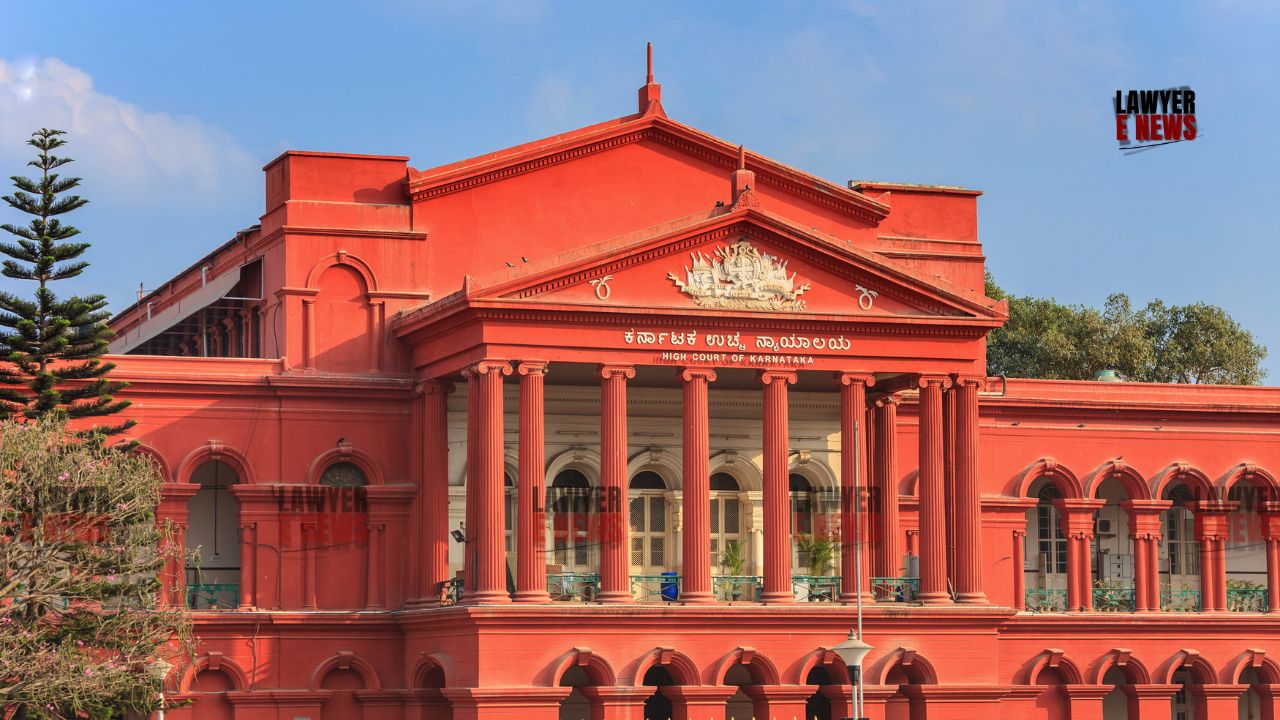-
by Admin
15 February 2026 2:16 AM



Karnataka High Court reinforces employer’s prerogative in transfer decisions and addresses misconduct due to health-related absenteeism and political influence. Bengaluru: The High Court of Karnataka, in a significant judgment delivered by a bench comprising Justices Krishna S. Dixit and Ramachandra D. Huddar, upheld the compulsory retirement of an employee who failed to report to her transferred workplace, citing health reasons. The judgment emphasizes the employer’s prerogative in determining an employee’s place of work and addresses the implications of political influence in service matters.
The case involved an appeal by the Karnataka Food and Civil Supplies Corporation Limited and its officials against the order favoring the respondent-employee, Smt. Veena M. The single judge’s order had set aside the punishment of compulsory retirement and directed her reinstatement without back wages but with continuity of service for retirement benefits. The appeal raised critical Issues regarding employment transfers, unauthorized absenteeism due to alleged health problems, and political interference in service matters.
The High Court reiterated that the prerogative of determining the place of work lies with the employer. “It is competent for the government to transfer a civil servant from one post to another equivalent post,” the court cited from Justice Rama Jois’s ‘Services under the State.’ The judgment emphasized that any order of transfer made in public interest cannot be challenged in court unless it violates statutory rules, which was not argued in this case.
The respondent-employee, Smt. Veena M., had cited health problems, specifically allergies, as the reason for her prolonged absence. However, the medical report did not support her claims, stating that she had no justification for availing leave on health grounds. The court highlighted that continued absence despite the rejection of leave applications constitutes misconduct. Referencing the Supreme Court’s decision in State of Punjab vs. Dr. P.L. Singla (2008) 8 SCC 469, the judgment affirmed that unauthorized absence necessitates disciplinary action.
The bench strongly criticized the involvement of political influence in service matters, stating, “Political interference in service matters is undesirable, as it affects public administration and the interest of the employer.” The court disapproved of the respondent’s act of seeking political influence through a Member of Parliament, noting that such actions could constitute grounds for denying relief in constitutional jurisdiction.
The judgment underscored the limited scope of judicial interference in disciplinary proceedings. “The findings of guilt in disciplinary proceedings have presumptive sanctity and cannot be readily interfered with,” the court noted, particularly when the employee’s departmental appeal had failed on merits. The bench maintained that the disciplinary authority’s decisions, including the quantum of punishment, should be respected unless exceptions apply.
Justice Krishna S. Dixit remarked, “The act of public servants causing political influence is a matter of deprecation and may constitute a sole ground for declining relief in constitutional jurisdiction.”
The High Court’s decision to allow the appeal reinstates the punishment of compulsory retirement for Smt. Veena M. This judgment reinforces the employer’s authority in deciding workplace assignments and underscores the gravity of unauthorized absenteeism and political influence in public service. The court’s ruling is expected to set a precedent in handling similar cases of misconduct and unauthorized absenteeism, strengthening the framework for public administration.
Date of Decision: June 21, 2024
Karnataka Food and Civil Supplies Corporation Limited & Ors. Vs. Smt. Veena M.
